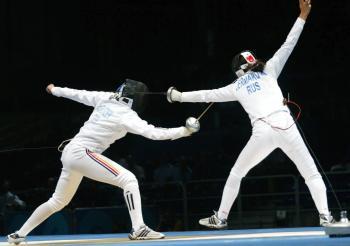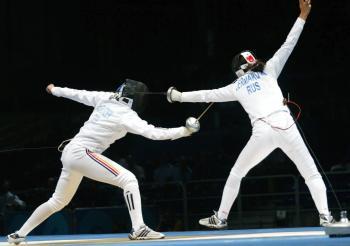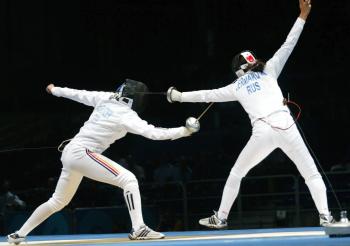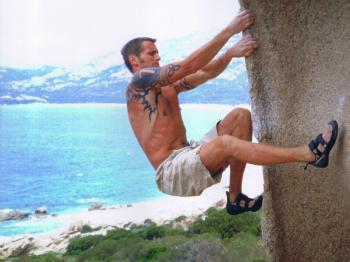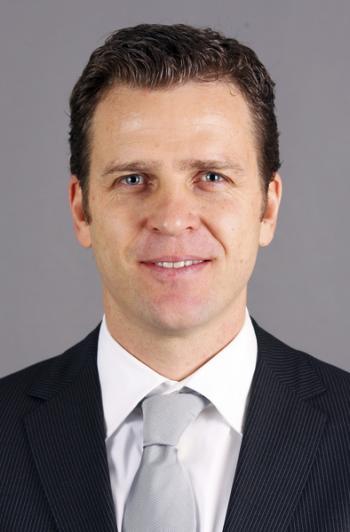Background
The Beijing Olympics are Imke Duplitzer’s fourth Olympic Games, with the first in 1996, then 2000 and 2004. But, she will not partake in the opening ceremonies. This epee fencer [an epee fencer is not restricted to hit any body part of its target with the tip.] spoke about human rights and her point of view as an athlete of the human rights situation in China during an interview.
Imke Duplitzer won the silver medal in the epee competition with her teammates in 2004; Runner-up in the single 2002; European Champion 1999; Military Champion 97/99; German Champion 199/2000/2110/2002/2004/2006); won multiple medals with her team when competing at world and Europe championships.
On Olympic Values, Beijing, and Human Rights
Epoch Times Germany (ETD): Ms Duplitzer. Please tell us about your memories as a participant in the 1996, 2000 and 2004 Olympic Games!
Imke Duplitzer (ID): I experienced unbelievable touching moments and forged many lifelong friendships. Yet, there also were many bitter moments. For example, I fainted in 2000, and therefore my team, that was already the most likely champion, had to accept defeat during the last contest.
The most memorable moment in my life was in 2004. At that time I was expelled by the club because I told the truth and criticized the club’s sponsorship practices. I also addressed how the club distributed money. My former trainer arranged his vacation especially so he could be present at the tournament during which we won the silver medal. I gained the upper hand with my last strike against the French team. It was wonderful to see his happiness at our win.
ETD: What do you expect from the 2008 Beijing games?
ID: I hope that we can enjoy great sportsmanship.
ETD: Would you please tell our readers your stand on human rights in China and how it relates to the Olympic Games?
ID: This is rather complex and can’t be touched upon in just three sentences, especially since the Chinese regime has a different understanding of human rights and freedom of opinion. This probably also has arisen from the regime’s fear that 1 or 3 billion Chinese might turn creative. The Chinese Communist Party (CCP) might suddenly be faced with a great problem, as the system in the existing form may no longer be able to function.
